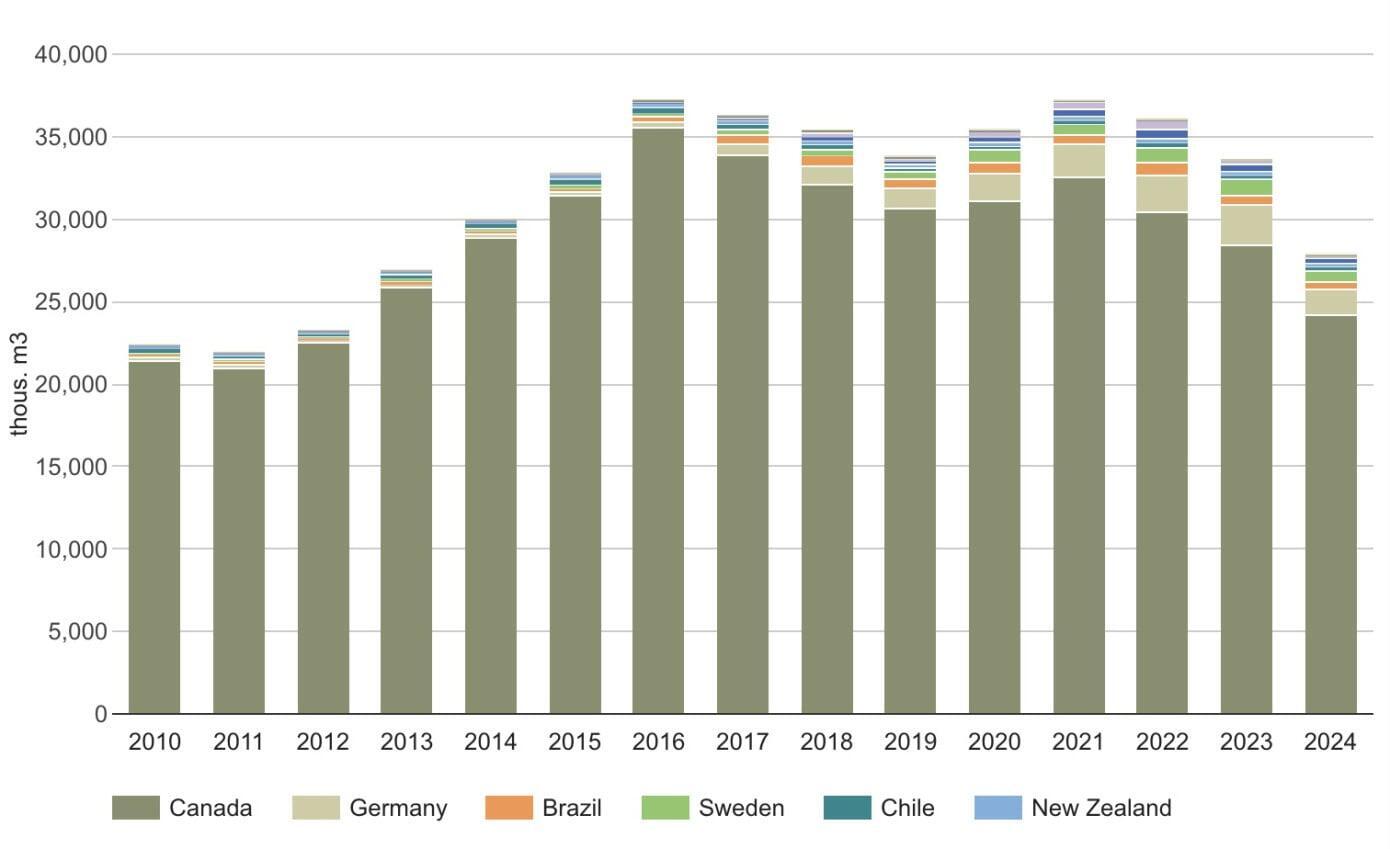Trump’s proposed 25% tariff on Canadian imports could disrupt U.S. lumber supply chain
President-elect Donald Trump’s threat to impose a 25% tariff on Canadian imports could significantly disrupt the U.S. lumber supply chain, according to Rajan Parajuli, an associate professor of forest economics and policy at NC State University.
Canada, one of the largest global producers of softwood lumber, exported 28.1 million m3 of softwood lumber to the U.S. in 2023, primarily for residential and commercial construction. Trump’s proposed tariff would require U.S. companies to pay a 25% tax on Canadian softwood lumber imports, which Parajuli indicated could increase domestic lumber prices as companies attempt to offset higher import costs.
Higher prices for Canadian softwood lumber would likely affect the U.S. housing market, raising building material costs. Parajuli emphasized that tariffs generally push domestic lumber prices higher, leading to increased consumer costs. When domestic lumber prices rise, U.S. producers tend to gain profits, but consumers bear the financial burden if demand for building materials stays steady.
Parajuli cited the 2006 U.S.–Canada Softwood Lumber Agreement as a historical example of how tariffs can impact supply chains. The agreement, active until 2015, allowed Canadian provinces to impose export taxes on softwood lumber purchased by U.S. companies. During periods when export taxes were applied, U.S. lumber producers gained $1.6 billion, while U.S. consumers faced $2.3 billion in losses as softwood lumber imports from Canada fell by 7.78%.
Trump’s proposed tariff could similarly reduce U.S. imports of Canadian softwood lumber, forcing companies to seek alternative sources such as Germany and Sweden. However, both countries lack the capacity to replace Canadian supply fully, with a combined export volume of 3.49 million m3 to the U.S. in 2023 compared to Canada’s 28.1 million m3.
Parajuli highlighted that up to 30% of the U.S. softwood lumber supply comes from Canada annually. The U.S. also lacks the production capacity to meet its demand due to workforce shortages and recent sawmill closures, including those by Interfor in the southern U.S.
Given the market volatility and uncertainty surrounding trade policies under the Trump administration, Parajuli suggested that the U.S. should focus on investing in technological advancements in the forestry sector and promoting sustainable market practices to stabilize its lumber supply chain.



